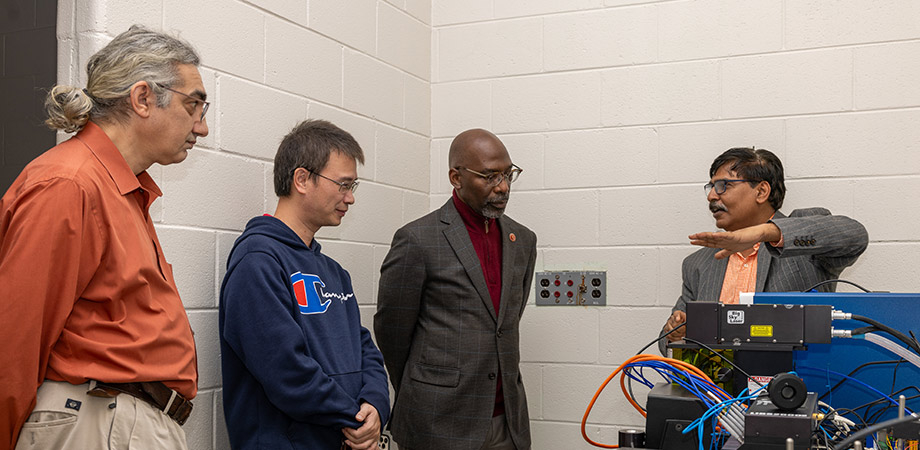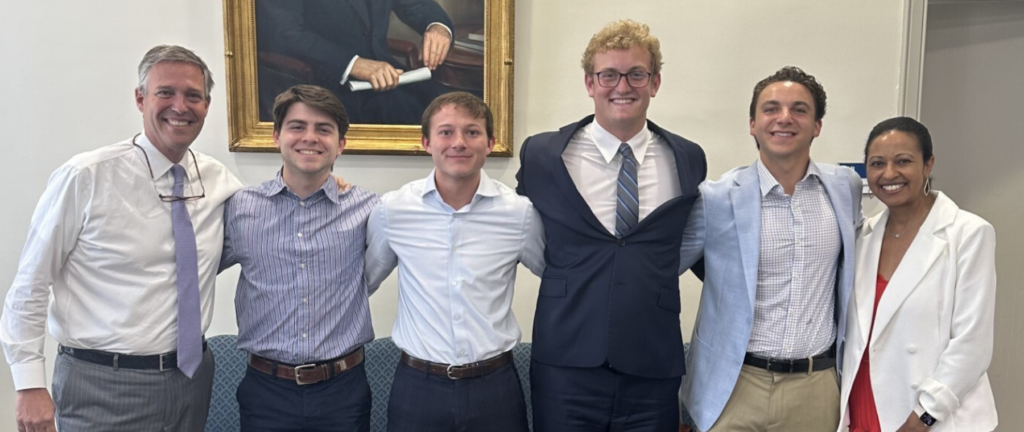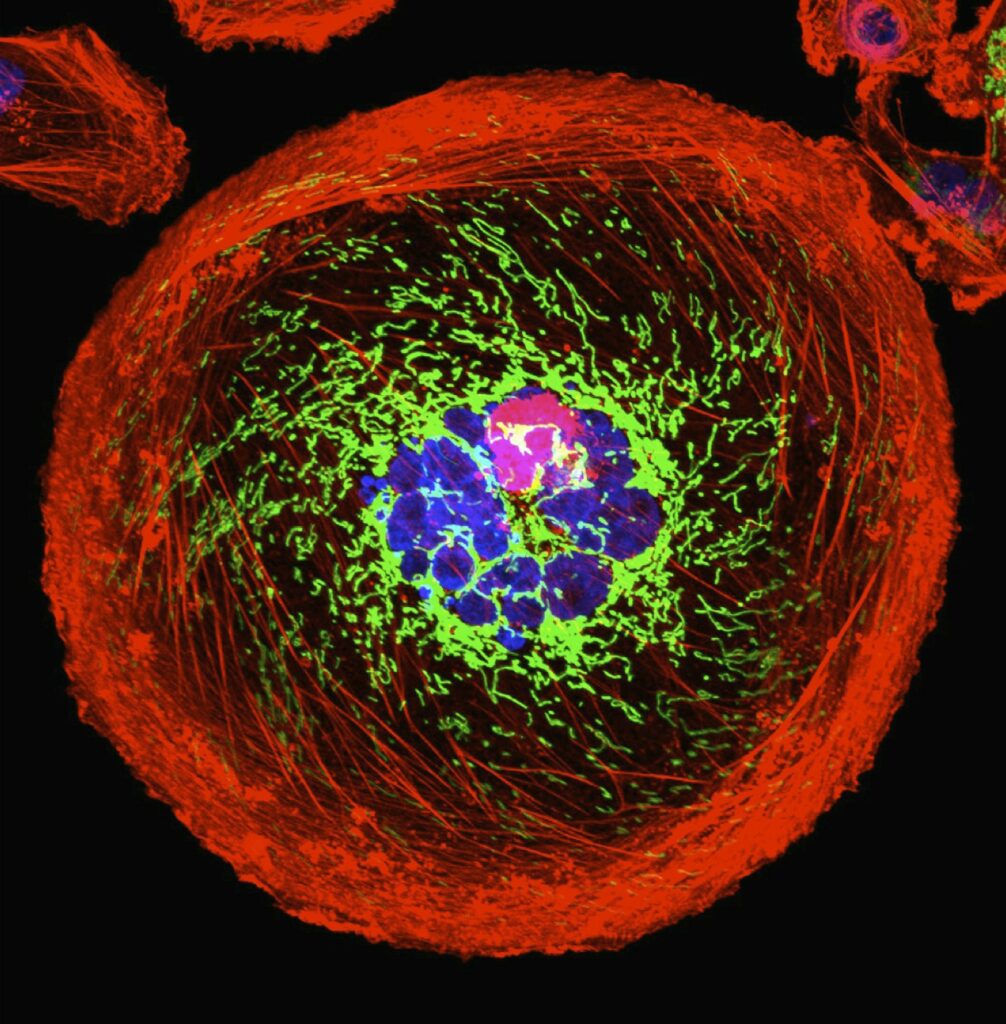Insider Brief
- Researchers and educators at Tuskegee University are this year’s recipient of the IBM-SPIE HBCU Faculty Accelerator.
- The $100,000 annual award, presented jointly by SPIE and the IBM-HBCU Quantum Center, supports and promotes research and education in quantum optics and photonics.
- Image: The team at Tuskegee University (left to right): Dimitar Dimitrov, Fan Wu, S. Keith Hargrove, and Akshaya Kumar. (Photo: Business Wire)
PRESS RELEASE — –SPIE, the international society for optics and photonics, and the IBM-HBCU Quantum Center have selected a group of researchers and educators at Tuskegee University as this year’s recipient of the IBM-SPIE HBCU Faculty Accelerator Award in Quantum Optics and Photonics. The group includes the head of the university’s physics department Akshaya Kumar; Dimitar Dimitrov, a fellow physicist and committed student mentor; Fan Wu, who facilitates cutting-edge computational tools for this research group’s students; and S. Keith Hargrove, a scientist, industry-alliance expert, and the university’s provost and senior vice president for academic affairs.
The $100,000 annual award, presented jointly by SPIE and the IBM-HBCU Quantum Center, supports and promotes research and education in quantum optics and photonics within IBM-HBCU Quantum Center member institutions, which currently includes 27 historically Black colleges and universities (HBCUs). The IBM-SPIE joint annual award is expected to provide a shared total of $500,000 by 2025. The first two named faculty-award recipients were Renu Tripathi, a professor of physics and engineering at Delaware State University, and Wesley Sims, an assistant professor of physics at Morehouse College.
The Tuskegee University group will put the award toward “Exploring the Optical Properties of Rare Earth-Doped Glasses and Photonic Crystals,” a project that will explore and utilize the importance of rare-earth ions doped in glasses which have a significant impact on quantum optics, photonics, and quantum-state storage. One application in particular involves the integration of solid-state laser materials, crucial for transmitting quantum information via light. As a core element of the student research training objective, the project will educate the students in glassmaking, impart optical measurement skills, and lead them through both theoretical and experimental approaches for photonic-crystal development. As well as its quantum-focused research goals, the Tuskegee University project includes a dedicated focus of preparing and empowering the group’s students for utilizing quantum optics and photonics research.
“SPIE is proud to collaborate with the IBM-HBCU Quantum Center in supporting quantum research programs at HBCUs,” said SPIE CEO Kent Rochford. “Quantum science is having an increasingly large impact on society, and a diverse population of skilled and knowledgeable students is critical to further developing and building this area of science and technology. We are excited to support the Tuskegee University group in their efforts, and I am very much looking forward to seeing the results of this particular project.”

“I think this award continues to be one of the best ways to stimulate interest and new opportunities in quantum computing, not only at Tuskegee University, but at all the institutions that serve traditionally underrepresented students and faculty,” said Global Lead, Ecosystem Growth at IBM Quantum Dr. Kayla Lee. “I’m looking forward to seeing how Tuskegee University continues to push boundaries and create additional opportunities for their students and community.”
“Our team is very grateful to receive the IBM-SPIE HBCU Faculty Accelerator Award in Quantum Optics and Photonics,” said Dr. Kumar. “We are excited to be introducing Tuskegee University students to the frontier area of quantum optics and photonics research. This grant will be particularly helpful to the university’s faculty and students researching glass materials doped with rare earth ions and photonic crystals for quantum upconversion, quantum cutting, and light quantum control applications. At the same time, a tandem approach for understanding the photonic crystals via theoretical simulation and experimental research is planned by university researchers.”
For more on the IBM-SPIE HBCU Faculty Accelerator Award in Quantum Optics and Photonics — including the next award cycle — please visit the dedicated webpage.
For more market insights, check out our latest quantum computing news here.



















